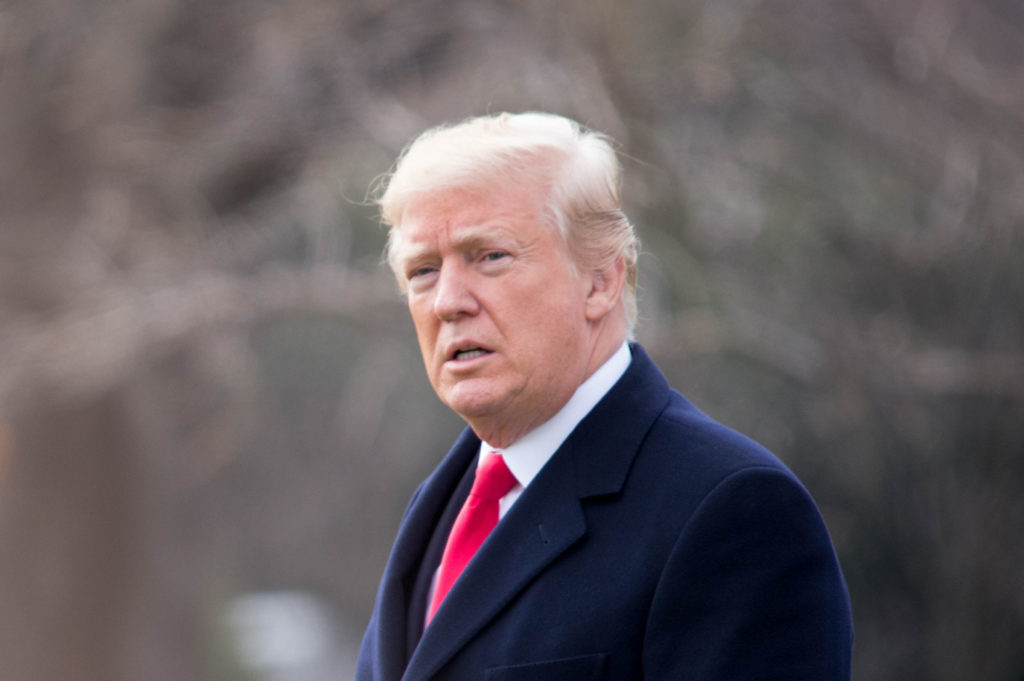The Iran mess is going poorly for Donald Trump on every possible front

As tensions between the United States and Iran threaten to spiral out of control, Europeans struggle to formulate their response to the crisis. On Monday night, British Prime Minister Johnson, French President Macron and German Chancellor Merkel issued a joint statement on the current situation which is getting decidedly mixed reviews.
The statement starts out with a condemnation of Iran’s actions in the region and then moves on to call on everyone involved to de-escalate the conflict: “There is now an urgent need for de-escalation. We call on all parties to exercise utmost restraint and responsibility. The current cycle of violence in Iraq must be stopped.” The words of the three European leaders have already drawn criticism online – particularly on the German side of Twitter – for failing to call the U.S. by name while mentioning Iran and Soleimani and seemingly directing their criticism exclusively at the country that was on the receiving end of the most recent escalatory step.
U.S. Ambassador to Germany, Richard Grenell – Trump’s punishment inflicted on the German people for making good cars and household appliances – promptly went on Fox News and a few smaller Trump-friendly outlets to spin the lack of outspoken criticism of the United States’ unilateral and unannounced action as a sign of agreement or even approval on the part of America’s European allies. This interpretation could hardly be further from the truth, though. Merkel, Macron and Johnson very clearly address their admonition to end the cycle of violence to “all parties” involved, but they couch their rebuke in carefully phrased diplomatic language, and they have good reasons for doing so. British Prime Minister Boris Johnson, above all, is well aware that he cannot afford to become too confrontational and risk the ire of his volatile American counterpart because this could jeopardize the prospective U.K./U.S. trade deal that the economic future of his country might end up depending on, post-Brexit. But the mere fact that “Mr. Brexit” worked closely with the German Chancellor and the French President to respond to the killing of Qasem Soleimani, and the trio released a joint statement after conferring for just a few hours, says a lot about the current state of international alliances.
In contrast to Richard Grenell, Secretary of State Mike Pompeo understands diplomatic language well enough. Pompeo was quick to detect and criticize the palpable lack of European support for the drone strike that killed a high-ranking Iranian on Iraqi soil: “Frankly, the Europeans haven’t been as helpful as I wish that they could be,” he told Sean Hannity during an interview on Friday. “The Brits, the French, the Germans all need to understand that what we did, what the Americans did, saved lives in Europe as well.” However, the Europeans have chosen not to buy into Pompeo’s narrative and are in fact deeply concerned about the long-term consequences of what some have termed an unlawful assassination and a disproportionate response. These consequences have already become manifest in the form of a vote in the Iraqi parliament to expel all foreign troops from the country and the Iranian government’s declaration that it will no longer honor its obligations under the JCPOA. It is anybody’s guess what is going to happen when – not if – Iran decides to retaliate.
The simple truth is that the issue of Iran has been a bone of contention between the Trump administration and the other co-signers of the Iran Nuclear Deal since day one. Last week’s escalation of the American strategy of maximum pressure and violent retaliation has thrown the existing fault lines into even stronger relief and the picture that is emerging is one of the United States becoming increasingly isolated as a result of Donald Trump’s policies.

